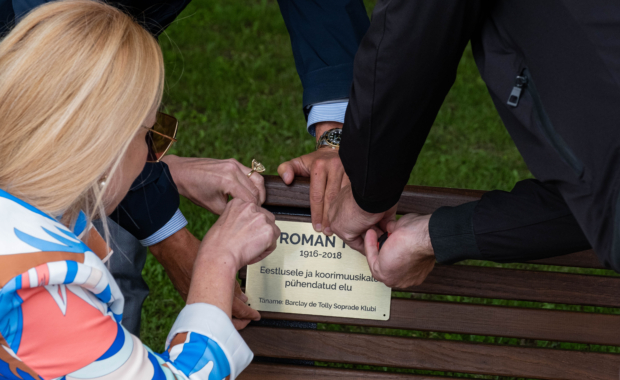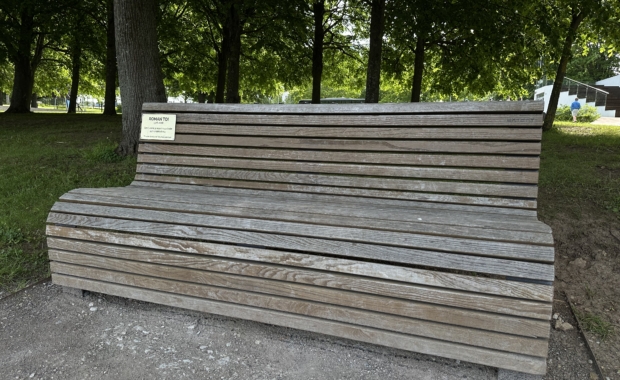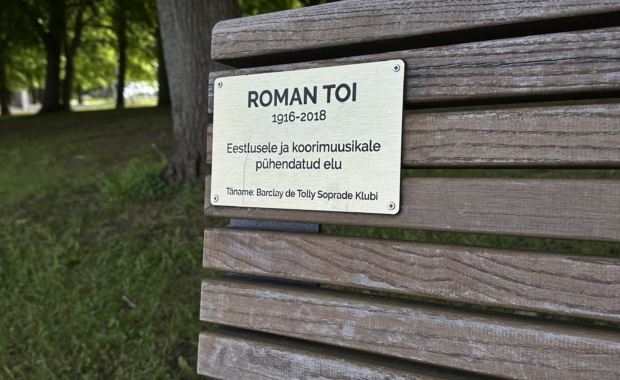Roman Toi
(18. June 1916 – 7. May 2018)
Composer, Choir Conductor, Leader of Estonian Choir Life Abroad – Guardian of Estonian Culture Across the Atlantic.
Roman Toi was an Estonian-born conductor, composer, organist, and music educator who became a leading figure in the Estonian choral scene abroad and a symbolic preserver of Estonian culture in Canada.
He began his musical studies at the Tallinn Conservatory, where he studied choral conducting, organ, composition, and conducting from 1932 to 1936 and again from 1941 to 1944. In 1944, Roman Toi fled to Germany, where he continued his musical work in refugee camps, conducting choirs, organizing concerts, and leading small song festivals. In 1949, he moved to Canada, becoming the driving force behind the Estonian choral movement abroad, and taught theory, composition, and conducting at the Toronto Conservatory for over 40 years. Toi also completed studies at the Chicago Conservatory, the Royal Conservatory of Toronto, the Institute for Advanced Musical Studies in Montreux, Switzerland, and the University of Toronto.
At the XXI Estonian Song Festival in 1990, held shortly before the restoration of Estonia’s independence, Roman Toi served as honorary conductor alongside Gustav Ernesaks and Richard Ritsing. He conducted the mixed choirs in Juhan Aavik’s composition “Hoia jumal Eestit” and the boys’ and men’s choirs in his own composition “Aiut-taiut”.
In 2014, Roman Toi celebrated his 98th birthday in Estonia and participated as a guest of honor at the XXVI Song Festival “Aja puudutus. Puudutuse aeg” (“Touch of Time. Time of Touch”). He was a member of the Estonian Composers’ Union and an honorary citizen of Viljandi. Toi received the Order of the White Star, IV Class (1996), the Estonian Evangelical Lutheran Church Lifetime Achievement Award (2011), and the Estonian Cultural Endowment Music Foundation Lifetime Achievement Award (2015).
A television program titled “Roman Toi 100”, which provides an overview of the composer’s 100th birthday celebrations and features reflections from the centenarian himself, is available in the Estonian Public Broadcasting (ERR) archive (2016).
The texts have been compiled using materials from Estonian Public Broadcasting (ERR) and the Estonian Music Information Centre (EMIC).


